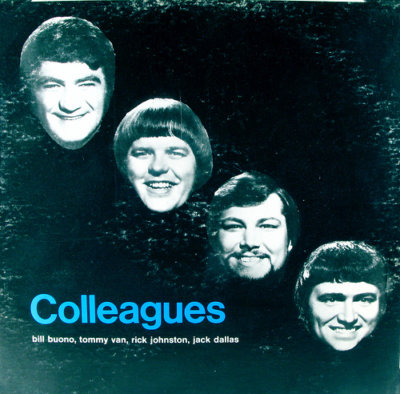Difficult Colleagues – Are They Affecting Your Mental Wellbeing?
Difficult colleagues can leave you dreading going to work. And it can be even worse if that person is your boss.
So why is it that conflict happens so often in the workplace? How much can dealing with difficult colleagues affect your mental health? And when should you really be worried?
Why difficult colleagues are everywhere
Why is it that so many people act in complicated ways at work, anyway?
1. A workplace environment is by its very nature made for conflict.
Workplaces see many of spending our days with people we would not choose as friends otherwise. Not only might you see these people more than you see your loved ones, you are required to face challenges and stress with them. And we all break at some point under stress.
It’s inevitable that in such a contrived environment things will not always go smoothly. No matter how much your company invests in team bonding and your emotional wellbeing.
What to do: Before blaming others, consider if your colleagues really are your problem or it might be the environment itself. Do you feel overwhelmed? Is this the right job for you? Are you perhaps just bored and creating drama to make the time pass?
Review the key elements of stress management, including self-care and better sleep. And consider mindfulness, proven to lower anxiety.
Of course do learn the difference between stress and depression, because the latter can require support.
2. People are hired for their matching skills, not their matching personalities.

By: Kevin Dooley
People in certain workplaces can have similar values. For example, in banking you will find many driven, money motivated sorts. But personalities, on the other hand, are bound to deviate.
People have different responses to stress, and even different responses to success.
What to do – First of all, be sure that you know your own personality and are not actually just psychologically projecting – i.e., putting your own traits onto others. Is it really you that is the difficult employee?
Then learn the power of perspective. Too many of us assume that others see the world from our vantage point. Learning to understand others’ viewpoints means you can understand them better.
And communication is always key – learning how to communicate under stress can be a priceless skill to invest in.
3. An office can be a negative environment despite a focus on workplace wellbeing.
No amount of employee perks can make up for the fact that many people just don’t like their jobs. This means that no matter how many free meals in the cafeteria, gym passes, or great lounge areas your company offers, you might be facing up to someone else’s moaning all day. Or even your own internal negative soundtrack.
What to do: Learn boundaries if your colleagues are always dumping on you.
If it is you who are the moaner, ask yourself good questions. Is it really the job you hate? Or are you using the job to hide the fact you are really not happy with other parts of your life? And would any job, no matter how wonderful, see you unhappy?
If you think you might be the downer, read our piece on negative thinking.
4. The workplace environment acts like a trigger for unresolved issues.

By: kenji ross
Most, if not all of us, have unresolved issues that can stem from our recent past, all the way back to childhood. The more we are put in stressful situations or forced intimacy with others, the more likely it is that one of these patterns will be set off.
It might just be that a recent breakup has your self-esteem at an all time low. So a throwaway joke about your wrinkled shirt has you overreact.
Or it might be that one of your colleagues, without you realising it? Drives you crazy because they have a similar personality to the parent figure you had the most issues with as a child. Perhaps, for example, they always tell you what to do and never appreciate your ideas, much like your mother when you were a kid.
What to do: Ideally, get to know who you are. This might be through reading self help books, journalling, or seeing a counsellor. The more you understand yourself, the less likely you are to let others get to you. The more you can see them for themselves instead of through a lens of the past.
Other things that can help are to learn about things like attachment theory, which covers what happens if you don’t get enough attention as a child, and childhood trauma.
5. Some people in every workplace will be suffering from mental health issues.
According to the mental health foundation, one in four people in the UK suffer from a mental health issue in the space of a year. Whether that is depression, an anxiety disorder, an eating disorder or sleep problems, or a personality disorder, it means that 25% of your colleagues will be struggling at any given time. And there’s every chance it might even be you at some points.
What to do: Drop your stigmas around mental health issues (including your own) by getting educated.
And try learning the art of self-compassion. It turns out that the more we can learn to cut ourselves some slack, the more we can give others empathy and understanding, too.
Worried your workplace is ruining your mental health?
Difficult relationships, regardless of the reason, can lead to stress, anxiety, low self-esteem, anger issues, and depression. If you really can’t get along with colleagues, despite putting in best effort? it can help to speak to a counsellor or therapist. They can help you identify the root causes of your conflict, manage your stress, and make better choices for yourself making forward.
Totally overwhelmed with work? Hate your career and losing your mind? We offer counselling for work stress with exceptional therapists in Central London. Or use our booking site for UK-wide affordable therapists.







Somebody once said that ‘hell is people’. I think that this is mostly true, but not entirely.
The problem is that whatever job one wishes to do invariably involves working with people and so conflict is ultimately inevitable.
Personally, I believe that there is an inherent bias in the workplace towards extroverts who enjoy and thrive off the company of other people. This needs to be challenged because there are many individuals who are equally introverted and prefer working individually as opposed to collectively. Introverts generally find social interactions draining and prefer working alone – most of the time.
Every workplace has its extroverts and introverts. but with an increasing emphasis in today’s workplace on TEAMWORK AND WORKING TOGETHER – this effectively discriminates against the nature of the introvert. The introvert would argue that that there is no such thing as a ‘team’ or ‘working together’ because once you strip away those words and peel off the labels – all you’re really talking about are individuals. Glossing over reality with fancy words – doesn’t alter the reality for introverts that working with other people tends to a right bummer.
As I said, there is an inherent bias towards extroversion and this is the real underlying problem in the workplace (the elephant in the room so to speak) – that doesn’t even get talked about much less addressed in any meaningful sense.
You’ve certainly raised some interesting points. We’re not sure that team means anyone has to lose their individuality, though. We have introverts in our team and we appreciate their own methods of working, and for us the definition of team work is individuals sharing their unique talents, not losing who they are. But if your workplace has you so upset and angry, is not the place for introverts (not all industries are!) and you feel so awfully unappreciated, it’s certainly worth looking at other options rather than feeling you have to suffer. What would it look like if you were in a job you actually liked? How could you get between where you are now and to there, the place where you are happier, perhaps even working for yourself? These are questions many people who feel trapped in their job come to counselling for. Having an unbiased person to listen and make a plan with can be well worth the time and cost of therapy.
Morning I feel that one of my senior work colleague is making my life miserable at work The perpetrator has two sisters who also work in the same work place Due to a problem last test had to prove myself innocent which was not accepted At work I’m treated so differently to others especially if we’re on the same shift I know it sounds trivial but when everyone is having lunch or a drink I’m never asked I carnt afford to leave my job due to paying a mortgage and bills I find myself in tears and even stopped taking medication which being epileptic is vital any advice would be most welcome Yous in kindness Linda